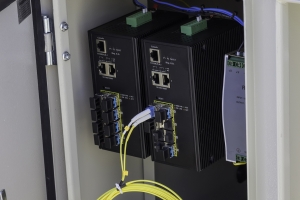Covid19
Whilst the UK is newly adjusting to life on lock down, signs of normality are slowly starting to return to Wuhan, the epicentre of China's battle against the virus. As the world watches Covid-19 wreak havoc on our economies, we are asking- what damage is this doing to the telecommunications industry?
Taiwan based company TrendForce identifies that Wuhan houses 25% of the global optical fibre production capacity, with output from companies such as Fiberhome, YOFC, and Accelink. In the wake of the virus, strict quarantine measures placed on Wuhan resulted in closures of vital factories, leading to industry shortages. As the rest of Asia has started to feel the pinch, how long until we do too?
Fortunately for Chinese manufacturers within the IoT Industry, the majority are now back fully functioning. Namely because each link in this supply chain is largely substitutable. However, the longevity of the virus remains relatively unknown, therefore this industry could well be in danger if serious outbreaks persist. For the IoT industry, this could negatively impact new product releases, with a wider impact on video surveillance companies in general.
The 5G industry has definitely taken a hit from Covid-19, with the supply chain certain to suffer from the outbreak, given that Wuhan is where the majority of 5G suppliers are. Not only have Chinese telecommunication bids been postponed; 5G infrastructure construction and application demonstration purchasing agreements have been halted. 5G base stations are being directly affected and it is these are which set high demand of quality optical fibre cables, almost double the demand of 4G.
Wuhan closures have therefore resulted in delays of components such as PCB and optical fibres. For the 5G industry, this means a likely decreased demand and shipment of Chinese 5G smartphones. In the UK, the threat of Brexit has allowed for many companies to stock up on vital components, in preparation of uncertain times. Just how uncertain times will get during the reign of Covid-19 remains to be seen.
Openreach halts home visits
In light of current social distancing measures in place to prevent the spread of Covid-19, Openreach have announced a change in operations. If a home visit is involved, they are no longer willing to install new broadband connections. There's no doubt that this is a sensible decision for a country working together to stave off a rising death toll, but what impact will this have on the UK’s Wi-Fi accessibility?
With the vast majority of people now working from home, efficient broadband connections have never been so imperative, nor so heavily relied on. The government now classes Telecom engineers as key workers, with Openreach stating that priority will be assigned to "key national infrastructure such as the NHS, pharmacies and food retailers and distributors”. Ensuring these critical sites are running smoothly is paramount in the pandemic and is obviously far more important than residential incidents. However, there are hundreds of qualified engineers no doubt eager to work in these financially troubling times. Perhaps they could be utilised on a short-term basis for residential call outs, providing social distancing and hygiene rules can still be adhered to. This would allow for the majority of residential faults to be fixed during this critical time.
Interestingly, Virgin Media have taken a different stance, stating that technicians are still making home visits. This is on the proviso that before a visit, customers confirm via text whether they are self-isolating or exhibiting flu-like symptoms. However, Openreach are continuing to work on street side cabinets, where many problems occur. Therefore, many home Wi-Fi issues can still be resolved. For those who lack access to a broadband or telephone connection, Openreach may still be able to provide solutions.




